Research clusters at Saxo
Saxo's research clusters aim to enhance the quality of the everyday research life at the department through inspiring, collective activities.
It is the ambition that the clusters contribute to making the department's research and research activities visible, accessible and inviting. A further objective is to build bridges between disciplines at the department with a view to supporting research interests that cut across the department's degree programmes. The clusters are also intended as a platform for better integration of researchers in fixed-term positions into the Saxo collective as well as an offer of collegial forums for all Saxo researchers.
Denmark then and now: Culture, Religion and Politics
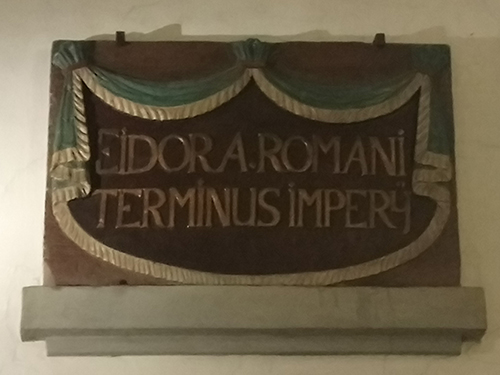 The research cluster Denmark then and now: Culture, Religion and Politics has been established, bringing together researchers from diverse subjects and disciplines at the Saxo Institute to explore and discuss Danish history across various periods and historical perspectives. Colleagues from outside the institute are also welcome. The cluster's approach is not constrained by a specific perspective on history, a particular historical period or certain geographical limitations; we simply share a common interest in understanding the historical development that has shaped Denmark into the contemporary nation it is today.
The research cluster Denmark then and now: Culture, Religion and Politics has been established, bringing together researchers from diverse subjects and disciplines at the Saxo Institute to explore and discuss Danish history across various periods and historical perspectives. Colleagues from outside the institute are also welcome. The cluster's approach is not constrained by a specific perspective on history, a particular historical period or certain geographical limitations; we simply share a common interest in understanding the historical development that has shaped Denmark into the contemporary nation it is today.
The research cluster convenes on a monthly basis during each semester, with members taking turns to present their research findings, discussing recent publications or current issues and receiving feedback from their colleagues. Finally, we discuss how we can best promote research and dissemination of Danish history both at the university and in the wider public.
Contact
- Jes Fabricius Møller: jesfab@hum.ku.dk
- Rasmus Mariager: rmariager@hum.ku.dk
Difference
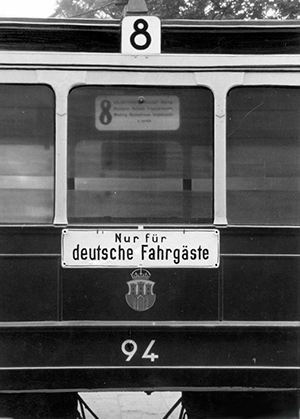
The Difference Cluster unites researchers across the different disciplines at the Saxo Institute who share an interest in social, cultural, economic, political, and linguistic modes of differentiation – as well as related and overlapping themes of identity, power, hierarchy, inclusion, and exclusion. We study a variety of historical and contemporary contexts, yet often find common challenges, akin ideas, and new inspiration as we share and discuss our work.
Blending academic exchange with social gatherings, we meet several times each semester over Wondrous Lunches (centered around a common conversational theme) and Hydra events (featuring three brief presentations followed by a debate) to discuss red threads, differences, and new trajectories in our research as well as to share the joys and challenges of research life at the Saxo Institute and beyond. The cluster is continually evolving and is open to anyone interested in joining, participating, or developing formats and topics.
Contact
- Mark Vacher: mvacher@hum.ku.dk
- Tine Damsholt: tinedam@hum.ku.dk
Global
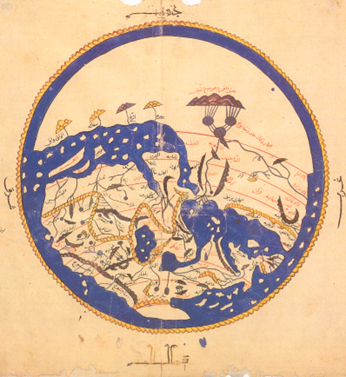
The Global Cluster brings together a lively community of scholars whose research interests cut across the artificial boundaries of nations, empires, cultures, and civilisations. We explore a variety of methodological approaches including but not limited to examining structural processes of integration and disintegration; making comparisons across time, space, and political boundaries; experimenting with different geographic and temporal scales and lenses in historical and ethnological inquiry; and tracing global connections, entanglements, and patterns.
We meet several times during the semester to present and share our research in a relaxed and supportive environment. In addition to bringing outside speakers to present their work, we also organise skill-building workshops and writing retreats. All are welcome to join this community of scholars.
Contact
- Jessica Hanser: jsha@hum.ku.dk
- Daniel Steinbach: steinbach@hum.ku.dk
Landscapes, senses and ecologies
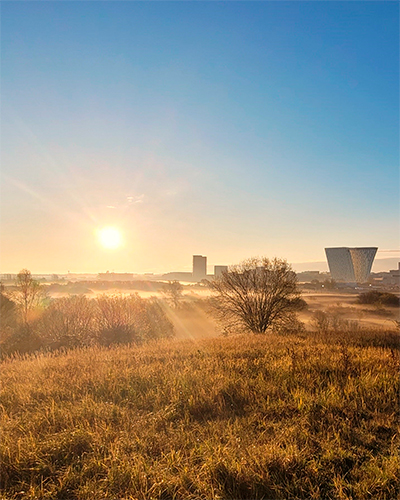
The Saxo Institute hosts numerous scholars who work on a range of topics revolving around landscapes, senses and ecologies – from the Ice Age through to the present day, and into the imaginaries of future worlds. This cluster welcomes scholars at Saxo and beyond who work with how landscapes and senses come into being as well as the social worlds that emerge in relation to landscapes and sensory experience through practices as diverse as past and contemporary resource extraction, walking as method, architectural approaches to shaping public discourse, multispecies lifeways, cultural heritage, agricultural practices, and climate change mitigation.
This cluster seeks to foster cross-disciplinary exchange across the great variety of interests and approaches to studying bodies-in-motion and landscapes-in-relation. All sorts of engagements are welcome: conceptual or theoretical discussions, methods and methodological approaches, economic and political inquiries, studies relating to ethics and aesthetics, as well as period and area specific studies.
As most activities in the cluster revolve around empirical studies, the cluster tends to host one or two excursions per semester, such as visits to exhibitions, urban or rural venues, as well as an ongoing series of walking seminars with presentations and discussions. We also invite guest speakers to the cluster, host film screenings, offer writing clinics, and cultivate a stimulating and creative collegial environment at The Saxo Institute by sharing in-progress ideas and collaborating on publications and applications.
Contact
- Katy Overstreet: katy.overstreet@hum.ku.dk
- Tim Flohr Sørensen: klq302@hum.ku.dk
Radicality
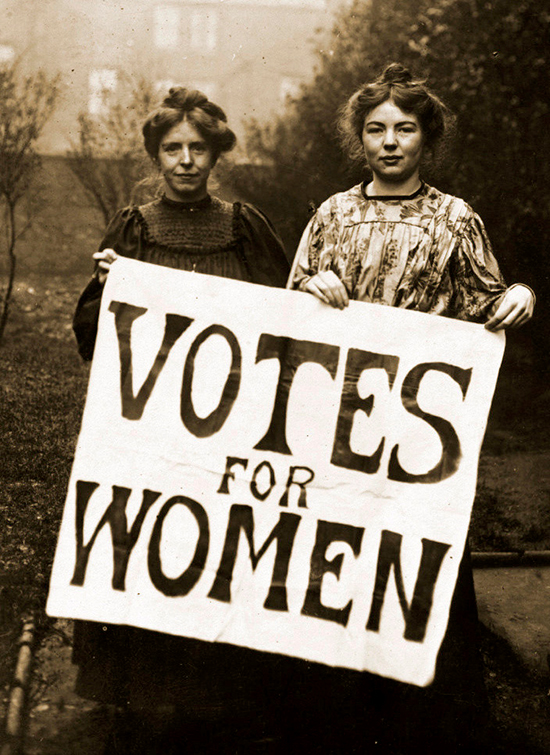
The nexus of the Radicality Cluster is a shared interest in ideas, processes, and movements across temporal and geographical contexts that have addressed the pressing issues of the day by seeking fundamental or radical change. The cluster brings together scholars at the Saxo Institute and elsewhere with an interest in the topic. The overall aim of the cluster is to create a cross-disciplinary forum for sharing and discussing conceptual and analytical approaches to the study of various forms of radicalism. This includes– but is not limited to – processes of religious and political radicalisation, the emergence and spread of radical ideas and ideologies, fundamentalism, radical movements, conspiracy theories as well as radical rejections of modern ways of life. The Radicality Cluster thus combines historical and philological perspectives with modern ethnological ones.
We convene several times each semester for presentations, seminars, guest lectures, social gatherings offering a creative forum for developing concepts and testing ideas or analytical approaches in a supportive and informal atmosphere. If you wish to receive mails about upcoming events, please contact the two conveners:
- Charlie Krautwald: ckr@hum.ku.dk
- Juliane Engelhardt: juliane@hum.ku.dk
Contact
Deputy head of department for research Anne Folke Henningsen
